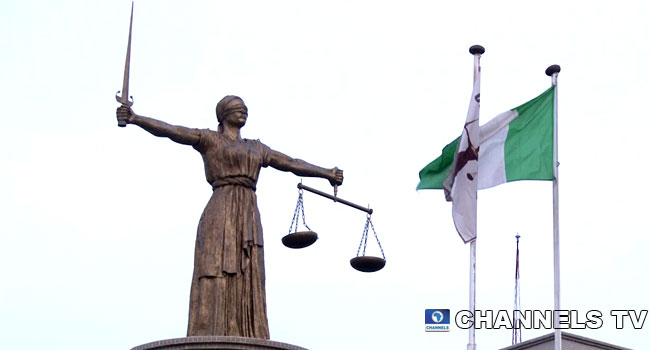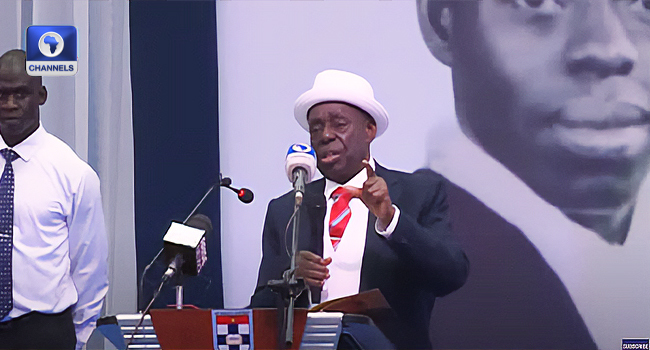A legal icon and Senior Advocate of Nigeria (SAN), Mr Afe Babalola, believes the military rule has affected Nigeria’s judicial system.
The elder statesman stated this when he appeared as a guest on the latest episode of News Night, a Channels Television programme which aired on Monday.
He decried the rate of corruption in the sector, although he said he does not agree that all judges were corrupt.
READ ALSO: DSS Not Empowered By Law To Arrest, Says Babalola
Mr Babalola explained that judges were well respected and celebrated in the country decades ago as they were seen as small gods.
He added that this was because they were earning about the equivalent of what their counterparts in developed countries were being paid, but that was no longer the case now.
The university proprietor said 10 years after he started practicing, he got an invitation to join the bench but had to reject the offer, although he admitted that it was the dream of every good lawyer to get such an opportunity.
The then Chief Judge of the Western Region, according to Babalola, was removed two years later via a telephone order by the military regime at that time.
He also highlighted the roles of the Department of State Services (DSS) as a security agency, as provided by the Constitution.
The veteran lawyer said, “The time when the military tried to deal with our judges the way they did in those days, that day they did the irreversible damage to law and judiciary.
“So, I am not surprised that the Buhari government did the same thing and people were at night arrested … the DSS who has no power of arrest; DSS’ duty in law is merely to gather information and give to the President and others.”
He insisted that the security outfit has no power to arrest anyone, adding that the nation has started to witness a reoccurrence of what happened back in the ’80s.
“If a judge knows that if he rules against government, they will look for him tomorrow, he will be very careful and yet the oath of office is that you give your judgement without fear or favour; where lies that now?” he questioned.
He added, “There are rules, there are ways of dealing with judges if they commit offence; that has not been followed.”





